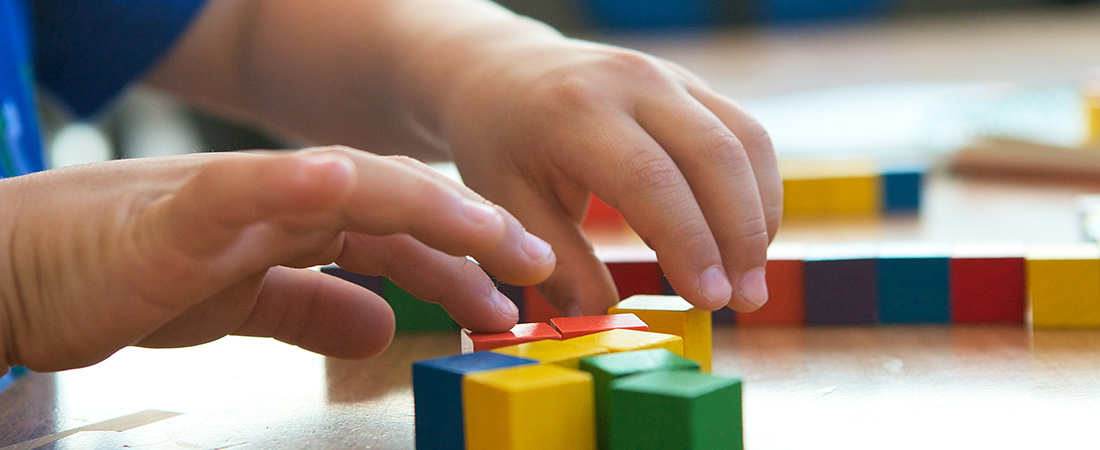Developing Students' Mathematical Habits

What makes a student good at mathematics? EDC’s Eden Badertscher and Kevin Waterman believe that it takes much more than rote memorization of facts. Instead, they argue, strong students exhibit flexible ways of thinking about mathematics—techniques that can even be generalized to situations beyond the discipline. They have started a new blog, Habits of Mind, to foster conversation among teachers, parents, and researchers about integrating these thinking skills into mathematics education—and to promote what they see as an essential part of the subject.
Q: What do you mean when you refer to “habits of mind”?
Badertscher: I think habits of mind form the framework upon which mathematical understanding can securely rest. They include things like making sense of a problem, identifying regularity, persevering, and thinking creatively. And these skills need to be taught and refined over time by engaging students in the mathematics. They are essential because they help students resolve new or unfamiliar problems—and they are the same techniques that mathematicians and scientists use when they are working on new problems.
Q: What does this approach look like in real classrooms?
Waterman: You would see more open-ended problems, with kids asking, “What is this problem about?” and “What can I do here?” You would also see students drawing on different procedures and applying thinking strategies they have learned to make sense of the problem. In the school mathematics tradition—the way that mathematics has historically been taught in the United States—class often begins with a lecture, followed by a theorem or method, then practice and exercise. But in that mode, students don’t develop an intuition for when the theorem makes sense to use. It’s just a procedure to follow when you see a certain type of problem.
Badertscher: In classrooms where mathematical thinking is on display, you will see teachers lead with problems that don’t have easy answers. Often, they won’t look like ones that students have already confronted. So students will have to work to make sense of the problems—there’s a lot of puzzling, thinking, talking. The formal presentation by teacher is sort of the end of process, not the beginning.
Q: How does this approach benefit students?
Waterman: One teacher told me that her students were able to use some of the strategies that we teach in CME Project—a high school mathematics curriculum that takes a habits-of-mind approach—to solve unfamiliar problems on a high-stakes assessment. The teacher hadn’t made it all the way through the curriculum, so on the exam, the kids were facing some problems that they simply hadn’t seen before. But they were able to solve them because of the mathematical thinking skills they had learned through CME. And that kind of flexibility and creativity is what we’re emphasizing. We want students to think, “I don’t recognize the problem, but let me try some things and figure it out.”
Q: To what extent are schools teaching these thinking skills?
Badertscher: Too many are not. For a long time, school mathematics has emphasized skills and procedures absent from understanding; when that understanding is not present, the unfortunate result is that mathematical thinking also tends to be scarce. Consequently, mathematics often makes no sense to students—it’s just a bunch of disconnected, irrelevant, unrelated procedures. And then many of them forget these procedures as soon as they graduate.
Waterman: However, the Common Core State Standards have boosted interest in mathematical thinking skills because they contain both process and content standards. A focus on habits of mind helps students make sense of when to pull a particular skill for a particular purpose.
Q: How do you reconcile this approach with the current emphasis on assessment?
Badertscher: Focusing on habits of mind is powerful, but it can be unsettling for teachers, especially now when many teachers are being evaluated on their students’ performance. It’s difficult to change practice in that environment. And test scores and evaluations have made it still harder. For our part, we have to work with test developers to ensure that the tests measure mathematical thinking. At the same time, we need to help people realize that successful mathematics education is about more than just test scores, and continue to give teachers opportunities to keep improving as instructors and mathematicians themselves.